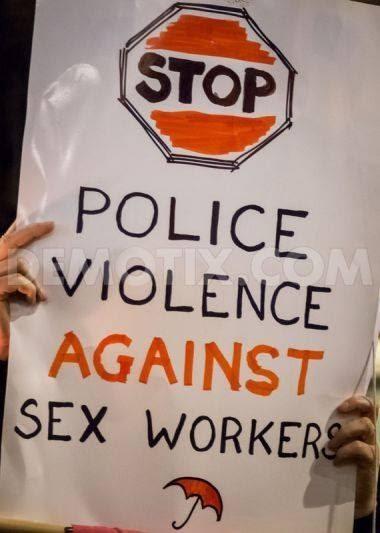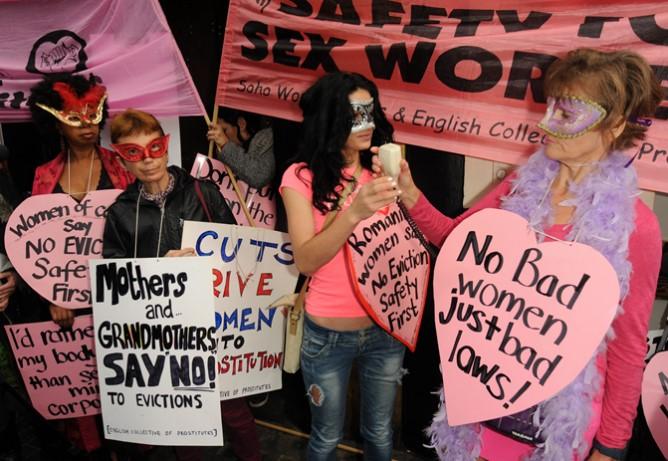Four Decades of Campaigning for the Safety and Rights of Sex Workers
Since 1975, the English Collective of Prostitutes (ECP) has worked nationally and internationally for the decriminalisation of sex work and towards safer working conditions for sex workers. ECP has supported women and other sex workers against charges of soliciting, closure orders, Anti-social behaviour orders (ASBOs), and brothel keeping.
Not criminals
The UK based ECP campaigns for the abolition of laws which criminalize sex workers and their families, for the expunging of criminal records, as well as for housing, economic alternatives and higher benefits and wages and in ECP's words, so that "any of us can leave prostitution if and when we want."
Standing up to state power

The struggle for sex workers’ rights is a continued and decade long struggle. It takes courage to fight against criminalising laws passed by state authorities and enforced by police power. ECP’s courage has often paid off in its many years of advocacy and resistance.
For 12 days in 1982, 50 women from the Collective occupied a church in London to protest against illegal police action, violence and racism against street workers. In 1995, ECP, with the support of Women against Rape, won a landmark case (and first-ever private prosecution for rape) after the authorities declined to prosecute a serial rapist who targeted sex workers. And ten years ago, after the murder of five women in Ipswich, ECP launched the Safety First Coalition, spearheading a campaign against the Policing and Crime Act which gave police greater powers to “arrest us for soliciting, force us into “rehabilitation”, raid our flats, get us evicted, and steal our earnings and property. It also criminalised clients."

Currently the English Collective of Prostitutes is opposing the new Welfare Reform law which abolishes income support as this is the only benefit that mothers and victims of domestic violence rely on. As ECP tells AWID, “Most sex workers are mothers trying to do our best for our children. Mothers should be supported not attacked.”
“We are in touch with sex workers all over the world. The situation of those of us in the Global South and those of us who work the streets, often black women, other women of colour and/or immigrant women, has always been our starting point.”
ECP, an AWID institutional member since 2014, is also part of the International Prostitutes Collective.
Watch Niki Adams of ECP talk about decriminalisation of sex work in Soho.
Connect:
- Contact with ECP through our online directory or email membership@awid.org.
- Learn more by visiting ECP’s website, Facebook page and follow them on Twitter @ProstitutesColl
